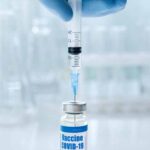The issuance of an EUA is different than an FDA approval. In determining whether to issue an EUA, the FDA evaluates the totality of available scientific evidence and carefully balances any known or potential risks with any known or potential benefits of the product. Based on the FDA’s review of the totality of the scientific evidence available, the agency has determined that it is reasonable to believe that Evusheld may be effective for use as pre-exposure prevention in certain adults and pediatric individuals (12 years of age and older weighing at least 40 kilograms). The agency has also determined that the known and potential benefits of Evusheld, when used consistent with the terms and conditions of the authorization, outweigh the known and potential risks of the product. There are no adequate, approved and available alternatives to Evusheld for the pre-exposure prevention of COVID-19 in the authorized population.
The primary data supporting this EUA for Evusheld are from PROVENT, a randomized, double-blind, placebo-controlled clinical trial in adults greater than age 59 or with a prespecified chronic medical condition or at increased risk of SARS-CoV-2 infection for other reasons who had not received a COVID-19 vaccine and did not have a history of SARS-CoV-2 infection or test positive for SARS-CoV-2 infection at the start of the trial. The main outcome measured in the trial was whether a trial participant had a first case of COVID-19 after receiving Evusheld or placebo and before day 183 of the trial. In this trial, 3,441 people received Evusheld and 1,731 received a placebo. In the primary analysis, Evusheld recipients saw a 77% reduced risk of developing COVID-19 compared to those who received a placebo, a statistically significant difference. In additional analyses, the reduction in risk of developing COVID-19 was maintained for Evusheld recipients through six months. The safety and effectiveness of Evusheld for use in the pre-exposure prevention of COVID-19 continue to be evaluated.
Under the EUA, fact sheets that provide important information about using Evusheld in pre-exposure prevention of COVID-19 as authorized must be made available to health care providers and to patients and caregivers. These fact sheets include dosing instructions, potential side effects and drug interactions.
Possible side effects of Evusheld include: hypersensitivity reactions (including anaphylaxis), bleeding at the injection site, headache, fatigue and cough.
Serious cardiac adverse events were infrequent in PROVENT. However, more trial participants had serious cardiac adverse events (such as myocardial infarction and heart failure) after receiving Evusheld compared to placebo. These participants all had risk factors for cardiac disease or a history of cardiovascular disease before participating in the clinical trial. It is not clear if Evusheld caused these cardiac adverse events.



